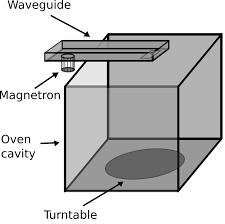Microwave systems form the backbone of modern communication and sensor networks, providing the speed and efficiency required for high-performance applications. Advanced tuning techniques enable these systems to meet stringent specifications, including optimal power, cost-effectiveness, efficiency, and longevity. This guide delves into the sophisticated methods for tuning microwave systems, focusing on the pivotal role of microwave tuners.
Microwave Tuner Essentials
Microwave tuners are critical components in the adjustment and optimization of microwave systems. They facilitate precise control over the frequency and phase of signals, enabling systems to achieve desired performance levels with enhanced efficiency and reduced interference.
Key Features and Specifications
- Power Handling: Microwave tuners must accommodate a wide range of power levels, typically from a few milliwatts up to several kilowatts, to ensure versatility across different applications.
- Efficiency: High efficiency in tuners translates to minimal energy loss and optimal system performance, crucial for applications where power conservation is a priority.
- Cost and Budget Considerations: The cost of microwave tuners varies significantly based on their specifications and capabilities. Budgeting for high-quality tuners is essential, as they can significantly impact the overall system's efficiency and reliability.
- Size and Specifications: Compact tuners are preferred for systems where space is at a premium, yet they must still meet the required electrical specifications to ensure performance is not compromised.
- Lifespan and Quality: Durability is a key consideration, with tuners designed to withstand the rigors of operation over time without degradation in performance. Quality materials and construction are paramount to ensure longevity.
- Speed and Performance Advantages: The ability to quickly adjust and stabilize signal parameters is a key advantage of advanced tuners, enhancing system responsiveness and performance.

Optimization Techniques
Optimizing a microwave system involves a thorough understanding of the interactions between its components and the signals they process. Here are some advanced techniques:
Adaptive Tuning
Adaptive tuning algorithms adjust tuner parameters in real-time based on feedback from the system's performance metrics. This approach ensures optimal operation under varying conditions, adapting to changes in signal strength, interference, and component characteristics.
Material Advancements
The development of new materials with superior electrical properties can significantly enhance tuner performance. High-quality dielectrics and conductors contribute to reduced losses, higher power handling, and improved efficiency.
Cost-Effective Design Strategies
Designing microwave systems for cost efficiency without compromising on performance involves selecting the right components, such as microwave tuners, that offer the best balance of price, performance, and reliability. Bulk purchasing, long-term supplier agreements, and modular design approaches can also contribute to cost savings.
Performance Analysis and Testing
Rigorous testing and analysis of microwave systems help identify optimization opportunities. Advanced simulation tools and measurement techniques allow engineers to fine-tune system parameters, ensuring that they meet the required specifications for power, efficiency, size, and lifespan.
Conclusion
Advanced tuning techniques for microwave systems are essential for achieving high performance, reliability, and efficiency in today's demanding applications. Microwave tuners play a crucial role in this process, offering precise control over system parameters. By focusing on key aspects such as power handling, efficiency, cost, size, and material quality, engineers can design and optimize systems that meet the exact needs of their applications.